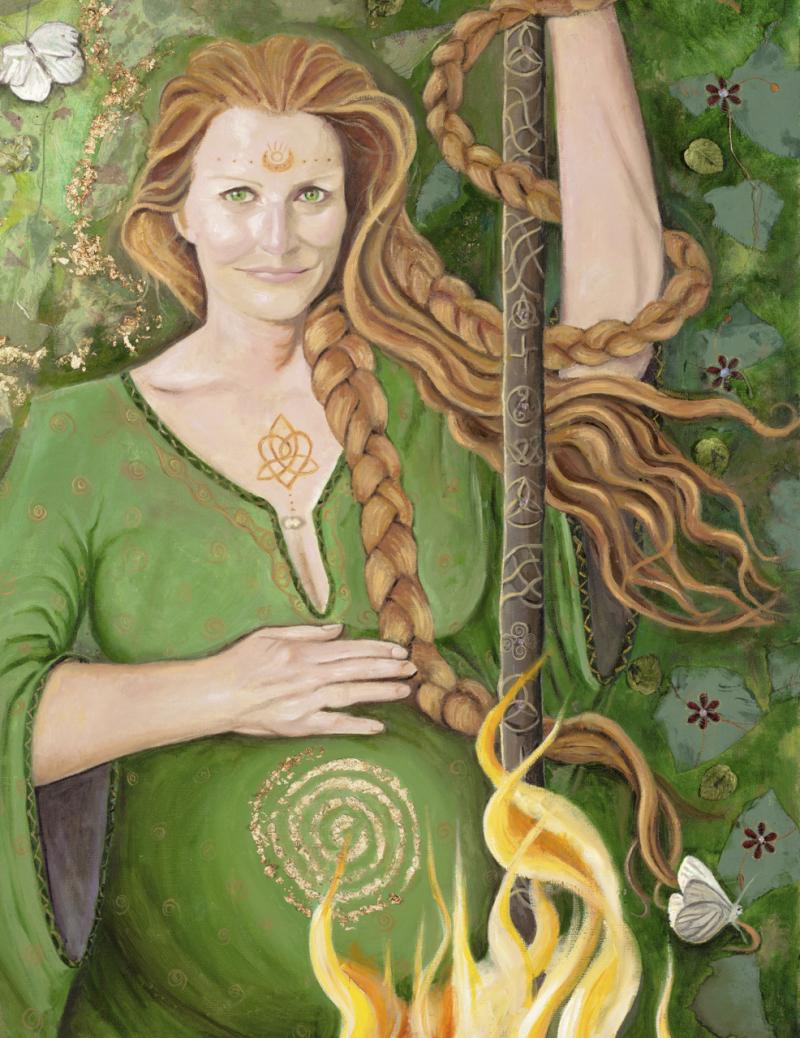Do you love herbal tea, essential oils, and salt lamps? If you prefer taking care of your home and yourself using natural remedies keep reading…
I’m sure you’ve been called a witch a few times in your life. I know I have. But what does it really mean to be a witch? Where does the term come from? You might be surprised to learn its origins—and you might really be a witch!
The word witch comes from the word “wit” to know and means “wise woman.”[1] Witches in pagan Ireland and Britain claimed to have direct communication with the divine. They had knowledge of healing and midwifery. Witches were in tune with nature and their own wisdom. They listened to their bodies and the bodies of others in order to heal ailments and work with natural processes. Simply put: witches listened to their intuition and used wisdom they acquired through years of working with natural healing.
It wasn’t until Christianity overtook pagan Ireland and Britain, overthrowing matriarchal society and establishing patriarchy, that Christian priests decided women were inherently incapable of communicating with the divine and should not be arrogant enough to assume such a role. Over time, witchery became associated with evil in the Church’s attempt to dominate women and promote a patriarchal society founded in religion. In order to promote patriarchy, the Church portrayed witches as ugly, demonic, “spinster” women who were not to be trusted. This view helped promote patriarchy and Christianity’s dominance over the people of Britain. But witches were originally good. Witches did not cast spells to harm, contrary to modern belief. Witches used nature and wisdom to heal.
In Ireland, there are still “white” witches who practice healing with natural medicine. Some of the white witches are so talented at listening to their intuition and working with nature that they are thought to have physic abilities. We all have psychic abilities one some level; we’ve all heard people mention that they should have listened to their “gut,” their intuition, because that primal feeling was right all along. Over the years there have been attempts to return to nature in our modern, Western society. Yoga, meditation, raw diets, and mindfulness have been trendy for years now. But that’s what our matriarchal societies from the past thrived on: listening to our bodies and nature.
So, are you, indeed, a witch? And if you are, is that bad?
If you meditate, practice yoga, eat clean, pray, listen to your body, use natural herbs and supplements to heal your body, appreciate nature’s cycle of life and death, heed Mother Nature’s warnings, and use wisdom from your grandmother, mother, sisters, and friends to help you make decisions, yes—you’re a witch.
And no, that’s not a bad thing—that’s a great thing. So the next time someone calls you a witch, respond with, “You’re right—I am a witch, and I’m proud of it!”
And go right on your witchy way.
[1] Condren, Mary. The Serpent and the Goddess: Women, religion, and power in Celtic Ireland. Harper and Row. NY, NY: 1989. 80.




